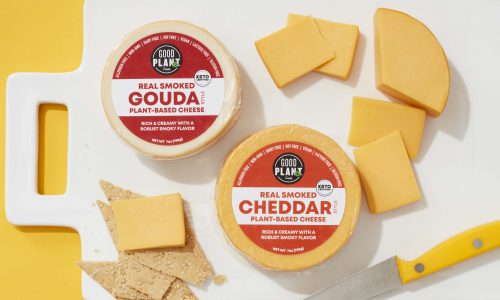Whole Foods Market released its fifth annual trends report that highlights future predictions in the food industry. The report features insights from more than 50 Whole Foods Market team members that include local foragers, regional and global buyers, and culinary experts.
While 2019 ushered in trends like shelf-stable probiotics, frozen treats, and faux meat snacks, 2020 will introduce new flavors, products, and a continued emphasis on sustainability.
What does 2020 have in store? Read on to explore the top 10 anticipated food trends.
1. Regenerative Agriculture
Simply put, regenerative agriculture describes farming and grazing techniques that help restore used soil. These practices improve biodiversity and create other long-lasing benefits to the environment. More sustainable practices at the beginning of the food production chain are helping push forward the growing movement of regenerative agriculture.
Try the trend: Zack’s Mighty Tortilla Chips
2. Flour Power
Expect creative new flours to emerge in 2020 like fruit and vegetable flours made from bananas and cauliflower. Traditional flours will be replaced with tigernut flour in chips and snack foods. Ingredients matter and consumers who are avid bakers will be looking to add a healthy boost from “super” flours with protein and fiber to their baked goods.
Try the trend: Late July Tortilla Chips made with tigernut flour
3. Foods from West Africa
In 2019, brands looked to flavors inspired from Asia, Oceana, and the western coasts of South America and toward ingredients like guava, dragon fruit, dried shrimp, and more. In 2020, expect brands to look toward West Africa for its superfoods like tamarind and moringa, and grains that include sorghum, fonio, teff, and millet.
Try the trend: Ginjan Organic Ginger Juice
4. Out-of-the-Box, Into-the-Fridge Snacking
Convenience is the name of the game, but consumers are no longer reaching for chips and pretzels. From packaged hard-boiled eggs to portable soups, the keyword for grab-and-go products is “fresh.”
Try the trend: Peckish
5. Plant-Based, Beyond Soy
So long, soy. While nut milks have swept the industry in recent years, products touting “no soy” in the next year will be swapped for blends that mimic the creamy textures of popular dairy products. In supplements, Whole Foods reports that brands are swapping soy for mung bean, hempseed, pumpkin, avocado, watermelon seed, and golden chlorella.
Try the trend: Ocean’s Halo
6. Everything Butters and Spreads
Nut butters and spreads are here to stay but brands are pushing the envelope with inventive seed butters beyond tahini (think watermelon seed butter and pumpkin butter). New butters to expect will derive from macadamia nuts and even chickpeas.
Try the trend: 88 Acres’ Watermelon Seed Butter
7. Rethinking the Kids’ Menu
It’s estimated that by 2026, 80 percent of millennials will have children, and these health-conscious parents are introducing their kids to more adventurous foods. Food brands thinking ahead to this next generation are offering products with better-for-you ingredients and new twists on old favorites like organic chicken nuggets and non-breaded salmon fish sticks.
Try the trend: Happy Fish Responsibly Farmed Salmon fish-shaped frozen salmon patties
8. Not-So-Simple Sugars
Brands will continue to experiment with sugar. Expect sweet syrups made from sorghum and sweet potato, and sugar replacements like Swerve, a cup-for-cup zero-calorie non-glycemic product made from ingredients found in select fruits and starchy root vegetables.
Try the trend: Birch Benders Monk Fruit Sweetened Pancake Syrup
9. Meat-Plant Blends
The “plant-based” craze will continue into 2020, but don’t expect butchers to go vegan. Instead, expect to see plant-based ingredients added to meat products.
Try the trend: Applegate’s The Great Organic Blended Burger
10. Zero-Proof Drinks
The non-alcoholic beverage industry is expected to reach $1.60 trillion by 2025 as consumers have begun seeking out these options in place of alcoholic drinks. Expect to see alcohol alternatives like alt-gin for gin and tonics and botanical-infused faux spirits for a faux martini in 2020. More inventive beverages include hops-infused sparkling waters and zero-proof apertifs.
Try the trend: Run Wild non-alcoholic IPA
Interested in working in the vibrant food industry? Explore our FoodForce division.






